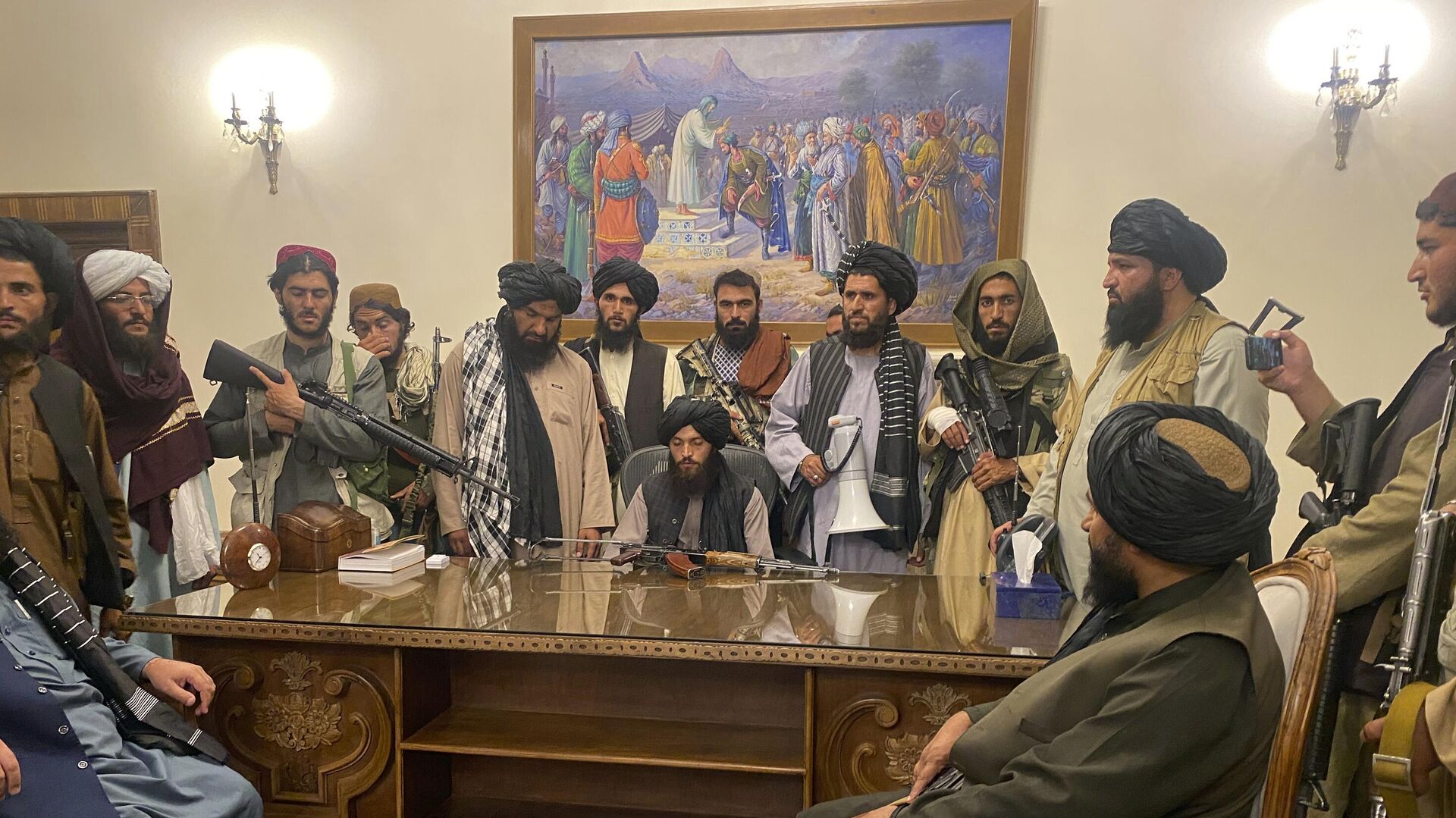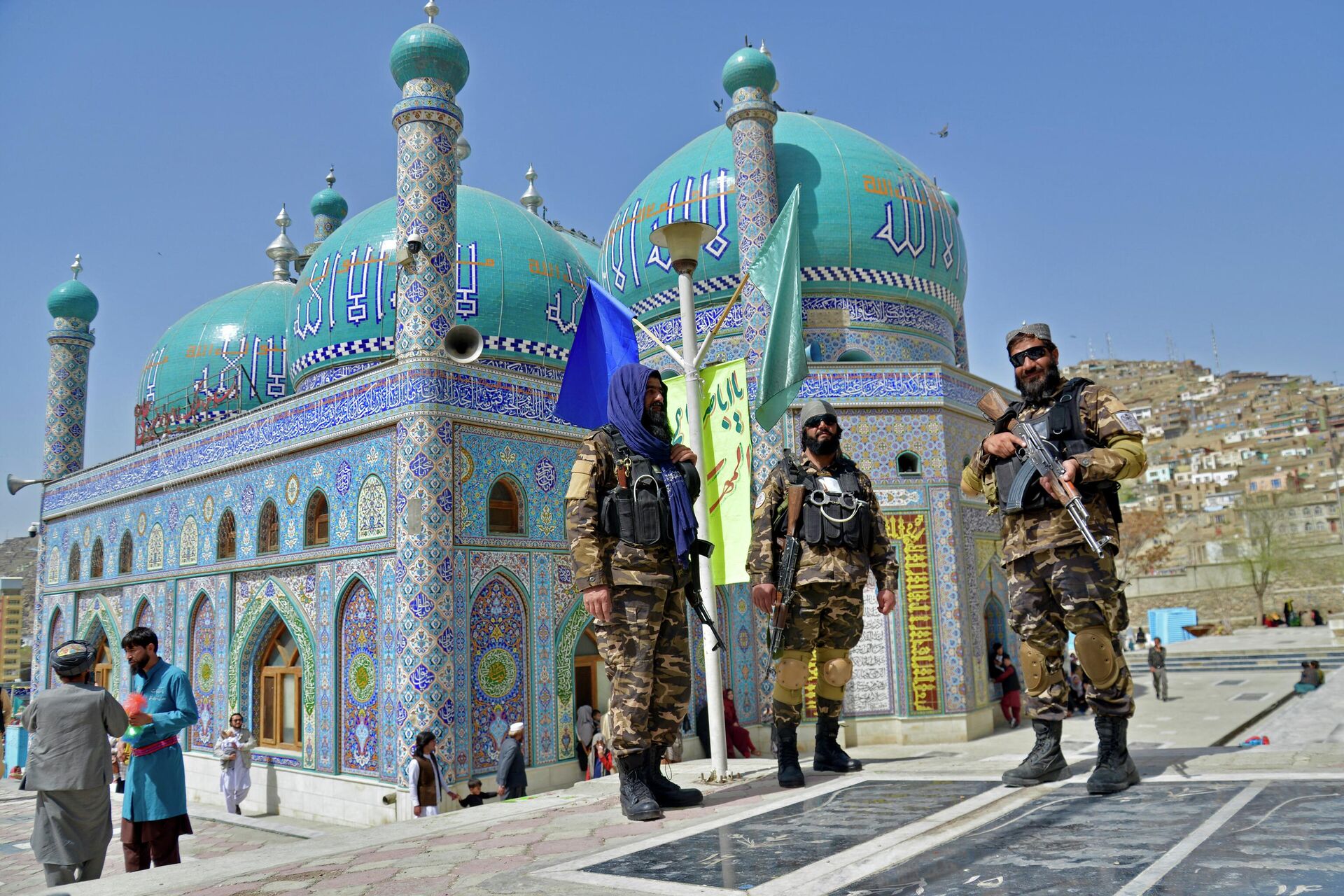https://sputnikglobe.com/20220609/rights-watchdog-urges-un-security-council-to-impose-targeted-travel-bans-on-taliban-1096150386.html
Rights Watchdog Urges UN Security Council to Impose Targeted Travel Bans on Taliban
Rights Watchdog Urges UN Security Council to Impose Targeted Travel Bans on Taliban
Sputnik International
MOSCOW (Sputnik) - A coordinated international effort is needed to address more effectively the human rights violations committed by the Taliban*, especially... 09.06.2022, Sputnik International
2022-06-09T10:47+0000
2022-06-09T10:47+0000
2022-06-09T10:47+0000
taliban
afghanistan
travel ban
https://cdn1.img.sputnikglobe.com/img/07e6/03/19/1094187365_0:0:2941:1654_1920x0_80_0_0_cfb00d218f81ada8f291144a2cc3a845.jpg
The Taliban's decision to uphold the ban on secondary schooling for girls was condemned by the European Union, the Organisation of Islamic Cooperation, and 16 female foreign ministers, and many governments have spoken against other rights violations committed by the radical group. While welcoming these reactions, the HRW said that it is not enough. It called for a series of "concrete steps" and said that Afghan women and girls "need more from the world than concern."As the UN Security Council is scheduled to meet later in June to review the exemptions granted to 14 Taliban officials in 2019 for them to attend peace talks, the watchdog urged the Council to refocus the bans on Taliban leaders implicated in human rights violations. This includes Taliban intelligence chief Abdul-Haq Wassiq and minister for religious obedience Shaykh Muhammad Khalid Hanafi, as well as the radical group's top religious leader Haibatullah Akhundzada.Other measures proposed by the HRW include for UN Secretary-General Antonio Guterres to pay an official visit to Afghanistan to raise awareness and for the UN mission in Afghanistan to have its rights monitoring mandate reviewed independently.Upon coming to power in August 2021, the Taliban promised to respect international human rights standards, and women's rights in particular. In December of that year, the Taliban-led interim government decreed that women are not property and cannot be forced into marriage. On 23 March, however, the Taliban banned secondary education for girls and in May, they made wearing the head covering known as hijab mandatory for all Afghan women when in public.* the movement is under UN sanctions for terrorism
afghanistan
Sputnik International
feedback@sputniknews.com
+74956456601
MIA „Rossiya Segodnya“
2022
Sputnik International
feedback@sputniknews.com
+74956456601
MIA „Rossiya Segodnya“
News
en_EN
Sputnik International
feedback@sputniknews.com
+74956456601
MIA „Rossiya Segodnya“
Sputnik International
feedback@sputniknews.com
+74956456601
MIA „Rossiya Segodnya“
taliban, afghanistan, travel ban
taliban, afghanistan, travel ban
Rights Watchdog Urges UN Security Council to Impose Targeted Travel Bans on Taliban
MOSCOW (Sputnik) - A coordinated international effort is needed to address more effectively the human rights violations committed by the Taliban*, especially against Afghan women and girls, a prominent international rights organisation said on Thursday.
"It’s time for governments to turn consensus that the Taliban’s actions are unlawful into coordinated actions that show the Taliban that the world is ready to defend the rights of Afghans, particularly women and girls, in meaningful ways", the Human Rights Watch (HRW) said.
The Taliban's decision to uphold the ban on secondary schooling for girls was condemned by the European Union, the Organisation of Islamic Cooperation, and 16 female foreign ministers, and many governments have spoken against other rights violations committed by the radical group. While welcoming these reactions, the HRW said that it is not enough. It called for a series of "concrete steps" and said that Afghan women and girls "need more from the world than concern."
"One step would be to reconceptualise the United Nations Security Council travel ban on some Taliban leaders first imposed in 1999 as part of a UN response to 'violent and terrorist activities' in Afghanistan," the statement read.
As the UN Security Council is scheduled to meet later in June to review the exemptions granted to 14 Taliban officials in 2019 for them to attend peace talks, the watchdog urged the Council to refocus the bans on Taliban leaders implicated in
human rights violations. This includes Taliban intelligence chief Abdul-Haq Wassiq and minister for religious obedience Shaykh Muhammad Khalid Hanafi, as well as the radical group's top religious leader Haibatullah Akhundzada.
Other measures proposed by the HRW include for UN Secretary-General Antonio Guterres to pay an official visit to Afghanistan to raise awareness and for the UN mission in Afghanistan to have its rights monitoring mandate reviewed independently.
Upon coming to power in August 2021, the Taliban promised to respect international human rights standards, and women's rights in particular. In December of that year, the Taliban-led interim government decreed that women are not property and cannot be forced into marriage. On 23 March, however, the
Taliban banned secondary education for girls and in May, they made wearing the head covering known as hijab mandatory for all Afghan women when in public.
* the movement is under UN sanctions for terrorism


